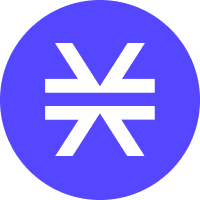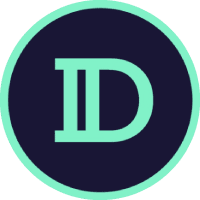Bitget: Global kunlik savdo hajmi bo'yicha top 4!
BTC bozor ulushi61.57%
Bitgetda yangi listinglar : Pi
BTC/USDT$102475.00 (-1.30%)Qo'rquv va ochko'zlik Indeksi70(Ochko'zlik)
Altcoin mavsumi indeksi:0(Bitcoin mavsumi)
Jami spot Bitcoin ETF sof oqimi +$319.5M (1K); +$728.7M (7K).6200 USDT qiymatidagi yangi foydalanuvchilar uchun xush kelibsiz sovg'a to'plami.Hoziroq oling
Bitget ilovasi yordamida istalgan vaqtda va istalgan joyda savdo qiling. Hozir yuklab oling
Bitget: Global kunlik savdo hajmi bo'yicha top 4!
BTC bozor ulushi61.57%
Bitgetda yangi listinglar : Pi
BTC/USDT$102475.00 (-1.30%)Qo'rquv va ochko'zlik Indeksi70(Ochko'zlik)
Altcoin mavsumi indeksi:0(Bitcoin mavsumi)
Jami spot Bitcoin ETF sof oqimi +$319.5M (1K); +$728.7M (7K).6200 USDT qiymatidagi yangi foydalanuvchilar uchun xush kelibsiz sovg'a to'plami.Hoziroq oling
Bitget ilovasi yordamida istalgan vaqtda va istalgan joyda savdo qiling. Hozir yuklab oling
Bitget: Global kunlik savdo hajmi bo'yicha top 4!
BTC bozor ulushi61.57%
Bitgetda yangi listinglar : Pi
BTC/USDT$102475.00 (-1.30%)Qo'rquv va ochko'zlik Indeksi70(Ochko'zlik)
Altcoin mavsumi indeksi:0(Bitcoin mavsumi)
Jami spot Bitcoin ETF sof oqimi +$319.5M (1K); +$728.7M (7K).6200 USDT qiymatidagi yangi foydalanuvchilar uchun xush kelibsiz sovg'a to'plami.Hoziroq oling
Bitget ilovasi yordamida istalgan vaqtda va istalgan joyda savdo qiling. Hozir yuklab oling



Solordi narxiSOLO
UZS
Ro'yxatga kiritilmagan
so'm1.29UZS
-0.61%1D
dagi 1 Solordi (SOLO) narxi bugungi 05:42 (UTC) holatiga ko'ra so'm1.29 UZS da baholangan.
Ma'lumotlar uchinchi tomon provayderlaridan olinadi. Ushbu sahifa va taqdim etilgan ma'lumotlar hech qanday aniq kriptovalyutani tasdiqlamaydi. Ro'yxatga olingan tangalar bilan savdo qilishni xohlaysizmi? Bu yerni bosingRo'yxatdan o'tish
SOLO dan UZS ga konvertori
SOLO
UZS
1 SOLO = 1.29 UZS. 1 Solordi (SOLO) ni UZS ga aylantirishning joriy narxi 1.29. Kurs faqat ma'lumot uchun. Hozir yangilangan.
Bitget barcha yirik savdo platformalari orasida eng past tranzaksiya to'lovlarini taklif qiladi. Sizning VIP darajangiz qanchalik yuqori bo'lsa, tariflar shunchalik qulay bo'ladi.
Solordi narx diagrammasi (SOLO/UZS)
Oxirgi yangilanish: 2025-05-15 05:42:01(UTC+0)
Bozor kapitali:--
To’liq suyultirilgan bozor kapitali:--
Hajm (24s):--
24s hajm / bozor qiymati:0.00%
24s yuqori:so'm1.28
24s past:so'm1.26
Hamma vaqtdagi eng yuqori:so'm201.35
Hamma vaqtdagi eng past:so'm0.1845
Aylanma ta'minot:-- SOLO
Jami ta'minot:
1,000,000,000SOLO
Aylanma tezligi:0.00%
Maksimal ta'minot:
--SOLO
BTC'dagi narx:0.{9}9733 BTC
ETH'dagi narx:0.{7}3869 ETH
BTC bozor kapitallashuvidagi narxi:
--
ETH bozor kapitallashuvidagi narxi:
--
Shartnomalar:
J8cKU4...rxz6ax8(Solana)
Ko’proq
Sizningcha, Solordi narxi bugun oshadimi yoki tushadimi?
Jami ovozlar:
Ko'tarilish
0
Tushish
0
Ovoz berish ma'lumotlari har 24 soatda yangilanadi. U Solordi narxlari tendentsiyasi bo'yicha hamjamiyat bashoratlarini aks ettiradi va investitsiya maslahati sifatida qabul qilinmasligi kerak.
Solordi bo'yicha AI tahlili hisoboti
Bugungi kripto bozorining diqqatga sazovor joylariHisobotni ko'rish
UZSda bugungi Solordi jonli narxi
Jonli Solordi narxi bugungi kunda so'm1.29 UZS tashkil etadi, joriy bozor qiymati so'm0.00. Solordi narxi so'nggi 24 soat ichida 0.61% ga pasaydi va 24 soatlik savdo hajmi so'm0.00. SOLO/UZS (Solordi dan UZS ga) ayirboshlash kursi real vaqtda yangilanadi.
da 1 Solordi qancha?
Hozirda dagi 1 Solordi (SOLO) narxi so'm1.29 UZS sifatida baholangan. Siz hozir so'm1.29 ga 1 SOLO yoki so'm10 ga 7.778199183181212 SOLO sotib olishingiz mumkin. O'tgan 24 soat ichida eng yuqori SOLO dan UZS ga bo'lgan narx so'm1.28 UZS, eng past SOLO dan UZS ga bo'lgan narx esa so'm1.26 UZS edi.
Solordi narx tarixi (UZS)
Solordi narxi o'tgan yil davomida -95.11% ni tashkil qiladi. O'tgan yildagi ning UZS dagi eng yuqori narxi so'm34.54 va o'tgan yildagi ning UZS dagi eng past narxi so'm0.8433 edi.
VaqtNarx o'zgarishi (%) Eng past narx
Eng past narx Eng yuqori narx
Eng yuqori narx 
 Eng past narx
Eng past narx Eng yuqori narx
Eng yuqori narx 
24h-0.61%so'm1.26so'm1.28
7d+18.70%so'm1.06so'm1.28
30d+14.41%so'm1.06so'm1.28
90d-38.61%so'm0.8433so'm2.09
1y-95.11%so'm0.8433so'm34.54
Hamma vaqt-88.20%so'm0.1845(2023-12-22, 1 yil avval )so'm201.35(2024-03-09, 1 yil avval )
Solordining eng yuqori narxi qancha?
2024-03-09da qayd etilgan Solordi-ning UZSdagi eng yuqori (ATH) narxi so'm201.35 edi. Solordi ATH bilan solishtirganda, Solordi-ning joriy narxi 99.36% ga pasaygan.
Solordi ning eng past narxi qancha?
2023-12-22da qayd etilgan Solordi-ning UZSdagi eng past (ATL) narxi so'm0.1845 edi. Solordi ATH bilan solishtirganda, Solordi-ning joriy narxi 596.71% ga ko'tarilgan.
Solordi narx bashorati
Qachon SOLOni sotib olish yaxshiroq? Hozir SOLOni sotib olishim yoki sotishim kerakmi?
SOLO sotib olish yoki sotish haqida qaror qabul qilayotganda, avvalo o'zingizning savdo strategiyangizni hisobga olishingiz kerak. Uzoq muddatli treyderlar va qisqa muddatli treyderlarning savdo faoliyati ham har xil bo'ladi. Bitget SOLO texnik tahlili sizga savdo uchun ma'lumotnoma berishi mumkin.
SOLO 4s texnik tahlil ga ko'ra, savdo signali Faol sotib olish.
SOLO 1k texnik tahlil ga ko'ra, savdo signali Sotib olish.
SOLO 1h texnik tahlil ga ko'ra, savdo signali Sotish.
2026 da SOLO narxi qanday bo'ladi?
SOLO tarixiy narx bajarilishini bashorat qilish modeli asosida SOLO narxi 2026 da so'm1.27 ga yetishi prognoz qilinmoqda.
2031 da SOLO narxi qanday bo'ladi?
2031 da SOLO narxi +37.00% ga o'zgarishi kutilmoqda. 2031 oxiriga kelib, SOLO narxi so'm2.72 ga yetishi prognoz qilinmoqda, jami ROI +111.38%.
Mashxur aksiyalar
TTSS
Solordi ning hozirgi narxi qancha?
Solordining jonli narxi (SOLO/UZS) uchun so'm1.29, joriy bozor qiymati so'm0 UZS. Kripto bozorida 24/7 doimiy faoliyat tufayli Solordi qiymati tez-tez o'zgarib turadi. Solordining real vaqtdagi joriy narxi va uning tarixiy maʼlumotlari Bitget’da mavjud.
Solordi ning 24 soatlik savdo hajmi qancha?
Oxirgi 24 soat ichida Solordi savdo hajmi so'm0.00.
Solordining eng yuqori koʻrsatkichi qancha?
Solordining eng yuqori ko‘rsatkichi so'm201.35. Bu Solordi ishga tushirilgandan beri eng yuqori narx hisoblanadi.
Bitget orqali Solordi sotib olsam bo'ladimi?
Ha, Solordi hozirda Bitget markazlashtirilgan birjasida mavjud. Batafsil koʻrsatmalar uchun foydali qanday sotib olinadi qoʻllanmamizni koʻrib chiqing.
Solordi ga sarmoya kiritish orqali barqaror daromad olsam bo'ladimi?
Albatta, Bitget savdolaringizni avtomatlashtirish va daromad olish uchun aqlli savdo botlari bilan strategik savdo platformasi ni taqdim etadi.
Eng past toʻlov bilan Solordi ni qayerdan sotib olsam boʻladi?
strategik savdo platformasi endi Bitget birjasida mavjud ekanligini ma’lum qilishdan mamnunmiz. Bitget treyderlar uchun foydali investitsiyalarni ta'minlash uchun sanoatning yetakchi savdo to'lovlari va tubanligini taklif qiladi.
Solordi kontsentratsiya bo'yicha xoldinglar
Kitlar
Investorlar
Chakana savdo
Saqlash vaqti bo'yicha Solordi manzil
Xolderlar
Kruizerlar
Treyderlar
Jonli coinInfo.name (12) narx grafigi

Global Solordi narxlari
Hozirda boshqa valyutalarda Solordi qancha turadi? Oxirgi yangilanish: 2025-05-15 05:42:01(UTC+0)
SOLO dan MXN
Mexican Peso
Mex$0SOLO dan GTQGuatemalan Quetzal
Q0SOLO dan CLPChilean Peso
CLP$0.09SOLO dan HNLHonduran Lempira
L0SOLO dan UGXUgandan Shilling
Sh0.36SOLO dan ZARSouth African Rand
R0SOLO dan TNDTunisian Dinar
د.ت0SOLO dan IQDIraqi Dinar
ع.د0.13SOLO dan TWDNew Taiwan Dollar
NT$0SOLO dan RSDSerbian Dinar
дин.0.01SOLO dan DOPDominican Peso
RD$0.01SOLO dan MYRMalaysian Ringgit
RM0SOLO dan GELGeorgian Lari
₾0SOLO dan UYUUruguayan Peso
$0SOLO dan MADMoroccan Dirham
د.م.0SOLO dan AZNAzerbaijani Manat
₼0SOLO dan OMROmani Rial
ر.ع.0SOLO dan KESKenyan Shilling
Sh0.01SOLO dan SEKSwedish Krona
kr0SOLO dan UAHUkrainian Hryvnia
₴0- 1
- 2
- 3
- 4
- 5
Tegishli kriptovalyuta narxlari
Solana narxi UZSStellar narxi UZSXRP narxi UZSOFFICIAL TRUMP narxi UZSEthereum narxi UZSWorldcoin narxi UZSdogwifhat narxi UZSKaspa narxi UZSSmooth Love Potion narxi UZSTerra narxi UZSShiba Inu narxi UZSDogecoin narxi UZSPepe narxi UZSCardano narxi UZSBonk narxi UZSToncoin narxi UZSPi narxi UZSFartcoin narxi UZSBitcoin narxi UZSLitecoin narxi UZS
Bitgetda yangi ro'yxatga olingan tangalar narxi
Yangi listinglar
Ko'proq sotib oling
Qayerdan kripto sotib olsam bo'ladi?
Bitget ilovasida kripto sotib oling
Kredit karta yoki bank o'tkazmasi orqali kripto sotib olish uchun bir necha daqiqada ro'yxatdan o'ting.
Video bo'limi — tezkor tekshiruv, tezkor savdo

Bitgetda shaxsni tasdqilashni qanday yakunlash va o'zingizni firibgarlikdan himoya qilish kerak
1. Bitget hisobingizga kiring.
2. Agar siz Bitgetda yangi bo'lsangiz, hisob yaratish bo'yicha o'quv qo'llanmamizni tomosha qiling.
3. Profilingiz belgisiga kursorni olib keling, "Tasdiqlanmagan" tugmasini bosing va "Tasdiqlash" tugmasini bosing.
4. Chiqaruvchi mamlakat yoki mintaqa va ID turini tanlang va ko'rsatmalarga amal qiling.
5. O'zingizning xohishingizga ko'ra "Mobil tekshiruv" yoki "Kompyuter" ni tanlang.
6. Ma'lumotlaringizni kiriting, shaxsingizni tasdiqlovchi hujjat nusxasini yuboring va selfi oling.
7. Arizangizni yuboring va bo'ldi, siz shaxsingizni tasdiqlashni tugatdingiz!
Kriptovalyutalarga sarmoya kiritish, jumladan Bitgetda onlayn Solordi xarid qilish xavflarni o‘z ichiga oladi. Bitget Solordi sotib olishning oson va qulay usullarini taklif etadi va birjada ko'rsatilgan kriptovalyuta haqida to'liq ma'lumot berishga harakat qiladi. Biroq, biz Solordi xaridingizdan kelib chiqadigan natijalar uchun javobgar emasmiz. Taqdim etilgan barcha ma'lumotlar xarid uchun tavsiya etilmaydi.
SOLO dan UZS ga konvertori
SOLO
UZS
1 SOLO = 1.29 UZS. 1 Solordi (SOLO) ni UZS ga aylantirishning joriy narxi 1.29. Kurs faqat ma'lumot uchun. Hozir yangilangan.
Bitget barcha yirik savdo platformalari orasida eng past tranzaksiya to'lovlarini taklif qiladi. Sizning VIP darajangiz qanchalik yuqori bo'lsa, tariflar shunchalik qulay bo'ladi.
Solordi reyting
Jamiyatning o'rtacha baholari
4.4
Ushbu kontent faqat ma'lumot olish uchun mo'ljallangan.
Bitget Insaytlari
ABBATIABDULRAHMAN
11S
Why $OBOL Is the Unsung Hero in the Combo Narrative
Decentralized Validators + Modular Chains = The Perfect Crypto Storm
In a market full of hype, a few projects are building the infrastructure the next generation of blockchains will depend on — and $OBOL is at the heart of it.
What’s the Combo?
The “Combo” narrative is the fusion of:
Modular Blockchains (e.g., Celestia, Shardeum, EigenLayer)
Decentralized Validator Infrastructure (Obol, SSV, DVT tech)
It’s about scalability + security, decentralization + uptime, and trustless staking + network resilience.
And $OBOL is uniquely positioned to power all of it.
What Makes $OBOL So Powerful Right Now?
1. Enabling Trustless Staking at Scale
Obol’s DVT (Distributed Validator Technology) lets multiple parties operate a single Ethereum validator securely.
This unlocks:
Validator redundancy
Minimized slashing risk
Increased validator decentralization
In short, Obol turns staking from a solo game into a cooperative ecosystem.
2. Essential for Modular L2s & Rollups
Rollups are booming — but they still rely on honest validators.
Obol provides the decentralized validator backbone modular chains need to:
Ensure uptime
Boost resilience
Maintain decentralization in proof-of-stake security layers
Narrative synergy: Obol + EigenLayer + Celestia = the new L1 security stack.
Why Smart Money Is Watching $OBOL Closely
Whale Accumulation: On-chain signals show steady smart wallet growth.
Ecosystem Adoption: Obol is being tested by leading staking pools, rollup builders, and restaking projects.
ETH Alignment: Ethereum’s shift to validator-centric innovation means Obol becomes more relevant by the day.
The Real Alpha: Obol Is Quietly Becoming Infrastructure
While memecoins scream for attention, Obol is earning its spot as critical Web3 infrastructure — the kind that institutions, rollup-as-a-service (RaaS) providers, and ETH restakers will depend on.
In every cycle, there's a project that moves before the market realizes it should.
In this one, $OBOL is that project.
Bitget Pro Insight: How to Position for the Combo Run
Short-Term Strategy: Trade $OBOL breakouts on DVT or restaking news
Mid-Term Strategy: Accumulate on dips with Ethereum scaling narratives
Watch Closely: EigenLayer mainnet, Celestia rollup partnerships, LRT launches — these are Obol’s catalysts
TL;DR:
$OBOL is key to the validator decentralization movement
It fits perfectly into the booming Combo narrative of modular + DVT
ALPHA-2.22%
OBOL-5.33%
JamesAnan
1K
$OBOL Tokenomics Breakdown: Built to Hold or Flip?
The $OBOL token, central to the Obol Network—a project focused on distributed validator technology (DVT) for Ethereum staking—features tokenomics that attempt to balance long-term alignment with short-term incentives. Whether it’s built to hold or flip depends on your risk appetite, trading horizon, and how you view the project's strategic vision.
Here’s a breakdown of $OBOL tokenomics with realistic insight:
1. Supply Structure & Emission Schedule
$OBOL has a fixed maximum supply, but how that supply is distributed and released matters greatly. Typically, with Web3 infrastructure projects like Obol, you see:
A meaningful percentage allocated to the team and early investors, usually with multi-year vesting (often 1-year cliff + 3–4 years linear).
An ecosystem or community fund aimed at protocol growth and incentivizing DVT adoption.
Airdrops or testnet rewards, designed to bootstrap decentralization and community trust.
If token unlocks are front-loaded or poorly timed, early investors may dominate market liquidity, making it better for flipping. But if vesting is drawn out and ecosystem incentives are structured to reward long-term participation (e.g., node operators), that favors holding.
2. Utility: Staking, Governance, and Coordination
$OBOL is not just a passive governance token. It’s expected to be used for:
Participating in governance decisions for protocol upgrades and validator coordination mechanisms.
Potentially staking to secure the network or to align incentives within operator clusters.
Economic coordination between distributed validator operators, especially in ETH staking scenarios.
This real-world utility, tied to Ethereum’s staking infrastructure, gives $OBOL long-term holding potential—particularly if Ethereum continues its transition toward decentralization and Obol becomes a core part of staking architecture.
3. Ecosystem Dependency
The token’s long-term value is heavily dependent on DVT adoption. If Ethereum staking protocols like Lido, Rocket Pool, or solo stakers begin to integrate Obol’s validator middleware, it could become a critical infrastructure layer. In that case, holding becomes compelling. But if adoption is slow or competitors gain ground, $OBOL’s value may flatten, making short-term trades more logical.
4. Liquidity and Exchange Listings
New listings often generate volatile price action, favoring flippers. If $OBOL was recently launched or unlocked, the first few weeks or months might present high upside and downside swings, good for traders but less predictable for holders.
Conclusion
$OBOL is designed to be held by those who believe in Ethereum’s long-term decentralization and the role of distributed validator tech. Its tokenomics—if executed with slow vesting, ecosystem incentives, and growing protocol utility—favor long-term alignment. But until real adoption data confirms the vision, it remains a tempting short-term flip for opportunistic traders.
Bottom line:
Built to hold for ETH-aligned stakers and infra believers.
Viable to flip in early stages due to volatility, listings, and low circulating supply.
HOLD-9.95%
CORE-4.57%
Habibusulaiman
1K
$OBOL
Title: “Obol: A New Standard for Secure Ethereum Staking”
The future of Ethereum staking is distributed.
Obol Network uses DVT (Distributed Validator Technology) to allow multiple operators to control a single validator key—together.
This makes validators:
More fault-tolerant
Harder to attack
Easier for solo stakers to manage
Think of it like staking with backup systems & teammates.
Obol is not just a project—it’s part of the next-gen Ethereum infrastructure.
Will you run a DVT validator?
OBOL-5.33%
SOLO-3.58%
MuazuAminuladan
1K
$OBOL
Title: “What is Obol Network? The Future of Ethereum Staking”
Insight 1:
Ever wondered how to make Ethereum staking more secure & decentralized? Meet Obol Network—pioneering Distributed Validator Technology (DVT).
#Obol #Ethereum #Staking
Insight 2:
DVT = Multiple nodes operating a single validator. This means no single point of failure—if one node goes down, the validator still runs smoothly.
Insight 3:
Why care?
Higher uptime
Lower slashing risk
Better decentralization
Perfect for solo stakers & DAOs
Insight 4:
Obol empowers anyone to run resilient validators without relying on centralized infra. It’s staking done right.
Insight 5:
DVT might just be the most important upgrade for Ethereum validators since the Merge. Are you paying attention?
OBOL-5.33%
SOLO-3.58%
BGUSER-M3LY1BQW
1K
$OBOL Network is a project focused on enabling distributed validator technology (DVT) for Ethereum staking. Its core mission is to make Ethereum staking more decentralized, fault-tolerant, and secure by allowing validator duties to be shared among multiple node operators. Here’s a breakdown of $OBOL future plans regarding decentralization:
1. Expansion of Distributed Validators
$OBOL is actively working on enabling a wider rollout of Distributed Validators (DVs), which allow multiple independent parties to collectively run a single Ethereum validator. This reduces centralization risks because no single operator has full control.
• Goal: Replace solo or centralized validators (run by exchanges or large staking providers) with DVs operated by a diverse set of parties.
• Impact: Increases resilience and censorship resistance of Ethereum.
2. Mainnet Launch of Charon
Charon is $OBOL DVT middleware – a coordination client that enables DVs to function. Its mainnet launch is a big step toward real-world deployment of decentralized validators.
• Mainnet readiness includes improvements to robustness, usability, and security.
• It supports threshold signing, fault tolerance, and multi-party validator responsibilities.
3. Open Participation & Community Involvement
$OBOL is moving toward open participation, meaning it will empower anyone to set up or join a distributed validator cluster.
• Decentralized cluster formation: Participants will form clusters permissionlessly.
• Improved tooling: Making it easier for less-technical users to set up DVs.
4. Ecosystem Partnerships
$OBOL collaborating with staking protocols like Lido, Rocket Pool, and institutional staking services to integrate DVT.
• Goal: DVT becomes a standard component of Ethereum validator infrastructure.
• Broader validator set: More diverse operators from different geographies and communities.
5. Governance and Protocol Decentralization
As $OBOL rows, it plans to decentralize its own governance.
• Community governance models: Inspired by other Ethereum-native protocols.
• Treasury decentralization: Long-term plans include handing off protocol funds and upgrades to the community.
⸻
In summary, $OBOL Network’s decentralization efforts focus on empowering validator diversity through DVT, enabling permissionless participation, launching secure middleware like Charon, and collaborating across the Ethereum staking ecosystem—all aimed at making Ethereum staking safer and more decentralized.
CORE-4.57%
OBOL-5.33%
Solordi haqida qo'shimcha ma'lumot
Tanga haqida umumiy
Tanga bilan bog'liq
Savdo bilan bog'liq
Tangalar yangilanishi
Boshqa mahsulotlar








